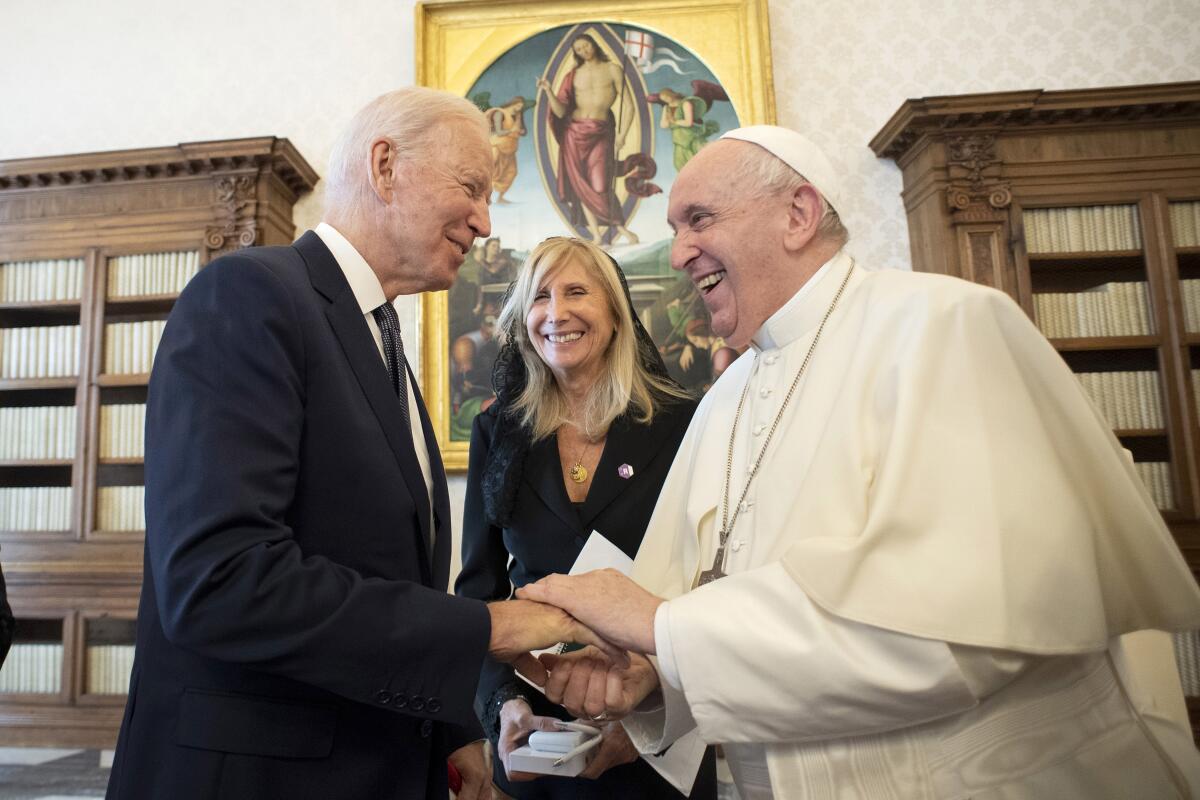Letters to the Editor: Is Pope Francis too easy on Biden? Or are U.S. bishops unfairly targeting him?

- Share via
To the editor: Conservative bishops in the U.S. argue that political leaders who support the right to abortion should not receive Communion. (“‘God love you’ — Biden visits Pope Francis amid political controversy over Communion,” Oct. 29)
But why limit this discussion to political leaders? The right to abortion is supported by many Catholics; should they also be denied Communion?
These celibate men with no families to support, who are themselves supported by contributions of people with families, should humble themselves and admit their ignorance when elevating abortion to an absolute.
Doris Isolini Nelson, Los Angeles
..
To the editor: It is a source of profound consternation and embarrassment to orthodox Catholics that Pope Francis should welcome President Biden, who favors abortion rights, after being at odds with the pro-life President Trump.
In this case, neither Biden nor the pope faithfully represents what the Catholic Church believes and teaches. The church, founded by Christ, has survived many bad popes over the centuries, and will survive this one.
Nevertheless, all of us, including popes and presidents, will one day appear before the judgment seat of God to give an account of our words (or silence) and deeds (or inaction).
Robert Rakauskas, Winnetka
..
To the editor: When it comes to controlling global climate change, it might be better to discuss the Catholic Church’s position on birth control that has helped the world population increase from about 2 billion in 1920 to 7.8 billion today.
Roger Newell, San Diego
..
To the editor: The article notes that Pope Francis recently said that he has “never refused the Eucharist to anyone.”
This seems to be inconsistent with the position that because Catholics believe that the celebration of the Eucharist is a sign of the reality of the oneness of faith, life and worship, members of those churches with whom Catholics are not fully united are ordinarily not admitted to Catholic Holy Communion.
Does this mean that it is now OK for anyone to receive the Eucharist in a Catholic ceremony? Or is this another example where if someone has enough money or power, they can do anything they want and it is OK with the church?
Victor Ibergs, Walnut
More to Read
A cure for the common opinion
Get thought-provoking perspectives with our weekly newsletter.
You may occasionally receive promotional content from the Los Angeles Times.









